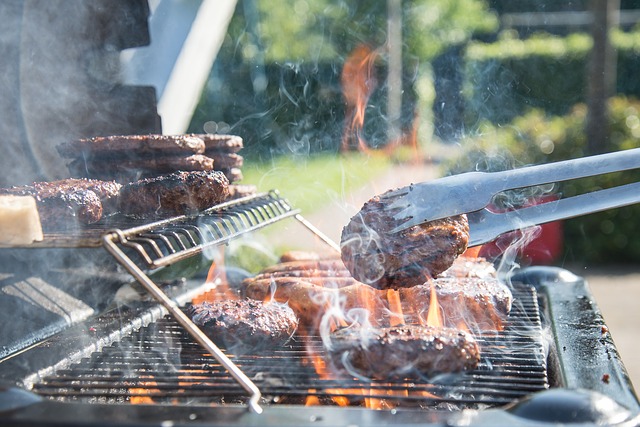Ketogenic Diets Explained – There are several options recommended for weight loss. You should avoid fad diets for the simple reason that they are impractical and can be very unhealthy, too. The appropriate food intake to achieve weight loss is different for everyone, but there are a few that work for many people. One such diet is the ketogenic diet. Other than being conscientious of your diet, weight loss can be achieved by doing workouts to burn excess calories and to build muscles. To supplement diet and exercise, you can also take some well-researched steroid seller to achieve your weight loss goals.
What is the ketogenic diet?
A ketogenic diet is any diet that forces the body to go into ketosis, which is a process that involves the breakdown of fats instead of carbohydrates to produce energy. For a proper ketogenic diet, the dieter needs to consume high quantities of fat, a sufficient amount of protein, and very minimal amounts of carbohydrates.
Why is the ketogenic diet so effective in weight loss?
The ketogenic diet works just like any other diet: It reduces the number of calories you consume to create a caloric deficit, where the body burns more energy than it consumes. This is the basic principle of weight loss. While some argue that “a calorie is a calorie,” others claim that all effective diets rely on caloric restriction somehow.
The central question that lingers in many minds is: Since the ketogenic diet relies on reducing calories, why should I minimize carbohydrates at all? Why shouldn’t the dieter monitor the number of calories they consume and go for a traditional low-fat diet, as is recommended by most diet books and many nutritionists? What advantage does the ketogenic diet have over other foods?
To answer these questions, it’s important to know that many advantages of the ketogenic diet are based on its ability to control hunger better than any other diet.
What are the benefits of the ketogenic diet?
Weight loss – The ketogenic diet utilizes fat as the primary energy source, hence there are weight loss benefits. While on keto, insulin (the hormone responsible for fat storage) drops drastically, converting the body into a fat-burning machine. Scientifically, the ketogenic diet has been proven to be more effective than the low-fat and high-carb diets, even in the long term.
Controls blood sugar – Keto lowers blood sugar as a result of the types of food you eat, hence it is a more effective way to manage diabetes than low-calorie diets. People who are pre-diabetic or have Type II diabetes should seriously consider a ketogenic diet.
Mental focus– Many people use the ketogenic diet for enhanced mental performance. Ketones are a superb source of fuel for the brain. With a lower carb intake, you avert a big rise in blood sugar. The effect is improved concentration and focus.
Other benefits
The ketogenic diet has also been used to deal with
- Managing epilepsy
- Lowering insulin level to healthy levels for those with insulin resistance
- Handling acne—many people have experienced improvement in their skin after switching to a ketogenic diet
What are some possible side effects of keto?
If you suddenly switch to the ketogenic diet, you may experience the following side-effects: reduced physical activity, headaches, cramping, heart palpitations, and muscle fatigue. The symptoms are short-lived, and you should feel better in a little while. One way to avoid the side effects is to gradually reduce your carb intake over a period of a few weeks.
Who should not do a ketogenic diet?
If you are in any of the groups listed below, you should consult your doctor or your nutritionist for guidance on how you should go about a ketogenic diet:
- If you are taking insulin as a medication for diabetes
- If you are on medication for high blood pressure
- If you are breastfeeding
What should you eat on a keto diet?
The food types that you eat will depend on how fast you want to go into ketosis. The fewer carbohydrates you consume, the quicker you will go into ketosis. You should limit your carbs to vegetables, nuts, and dairy products. Do not eat any refined carbohydrates, which include wheat (cereals, pasta, bread), starch (potatoes, yams), legumes, and fruit. Also stay away from grains (wheat, corn, rice), and sugars (honey, agave, and maple syrup).
You should eat meats (fish, beef, poultry), leafy greens (spinach), and aboveground veggies (broccoli and cauliflower). Also, consume high-fat dairies (butter and hard cheese), nuts and seeds (macadamia, walnuts, sunflower seeds), avocados, berries (raspberries and blackberries), sweeteners (stevia), and other fats (coconut oil, salad dressings that contain high fats).
What modifications or types of ketogenic diets are there?
There are different types of ketogenic diets for particular categories of people, like those who want to put on body fat. The classes include:
- Standard Ketogenic Diet (SKD): the typical keto diet that everybody is familiar with
- Targeted Ketogenic Diet (TKD): a variation where you eat a standard ketogenic diet but intake a small quantity of fast-digesting carbs before doing exercises
- Cyclical Ketogenic Diet (CKD): a modification of the ketogenic diet for bodybuilders, usually allowing a day per week to consume carbs and build up glycogen stores.



No Comments